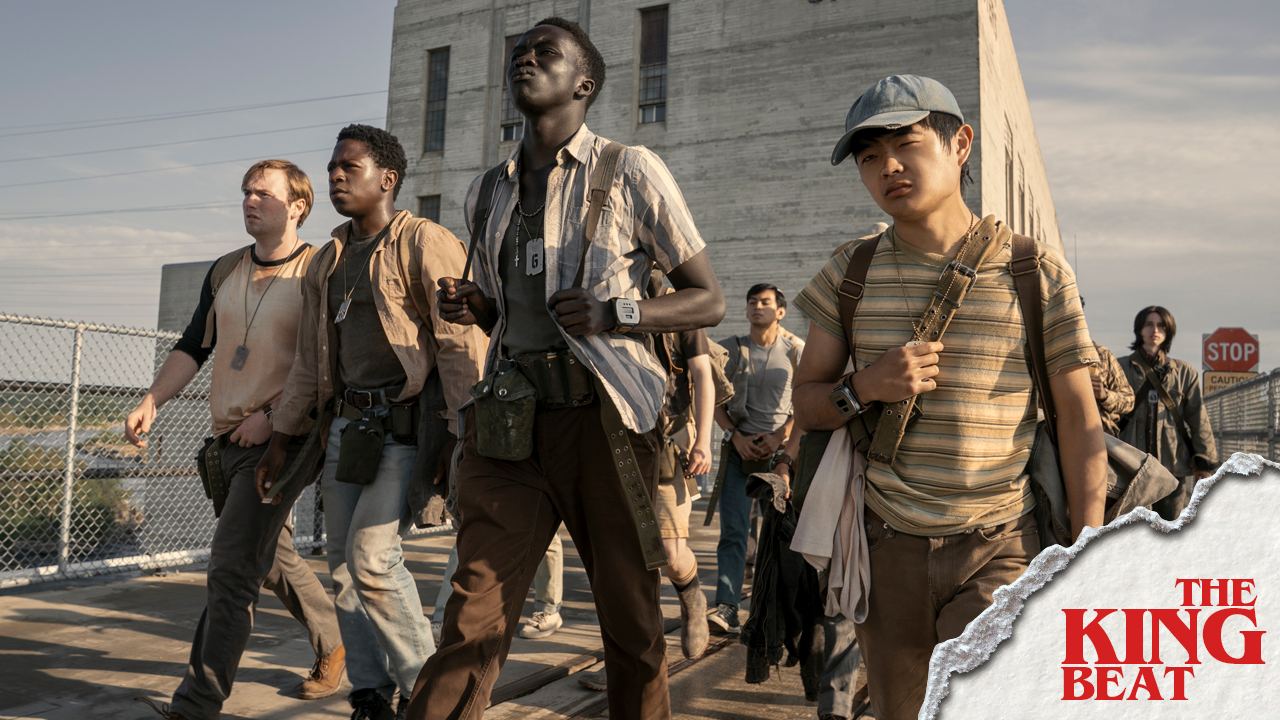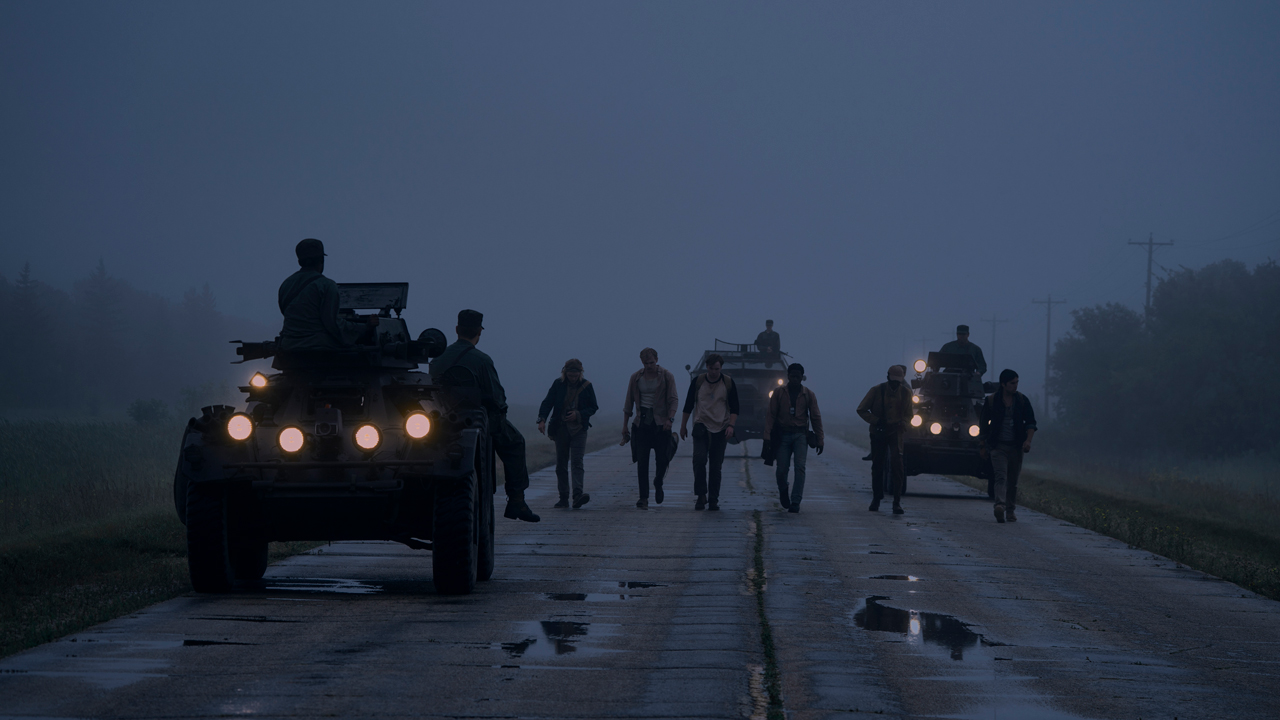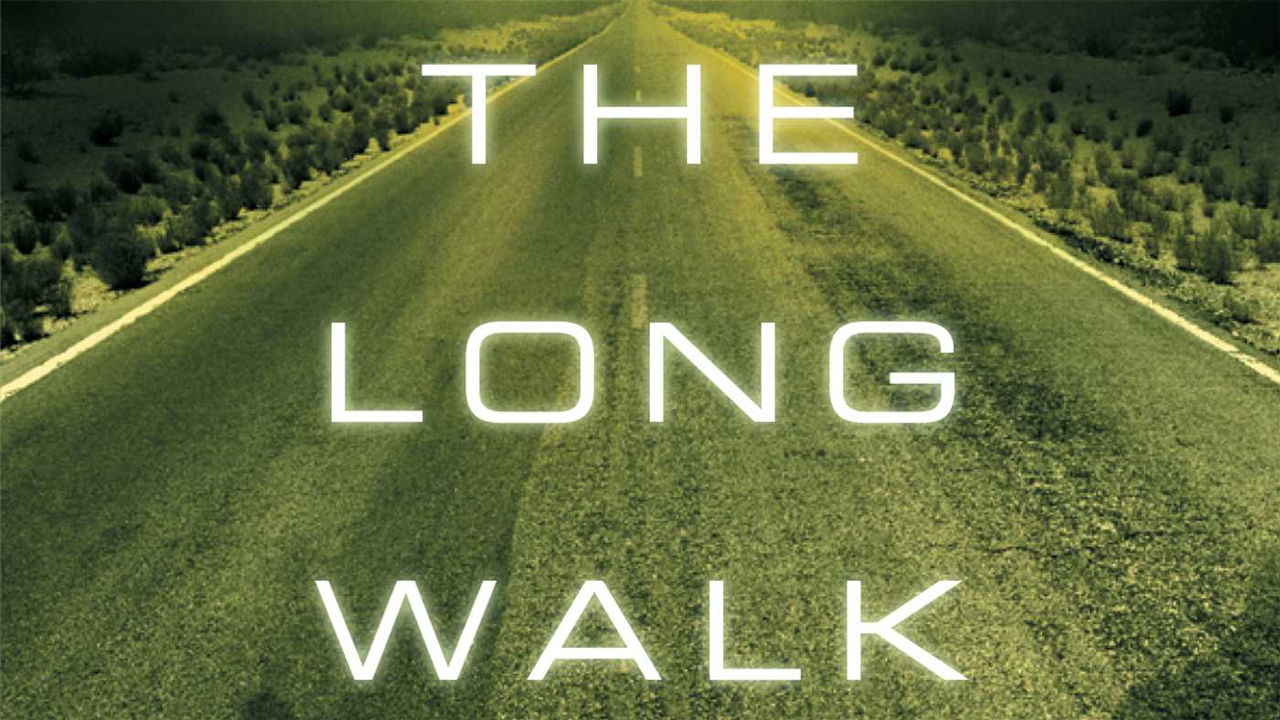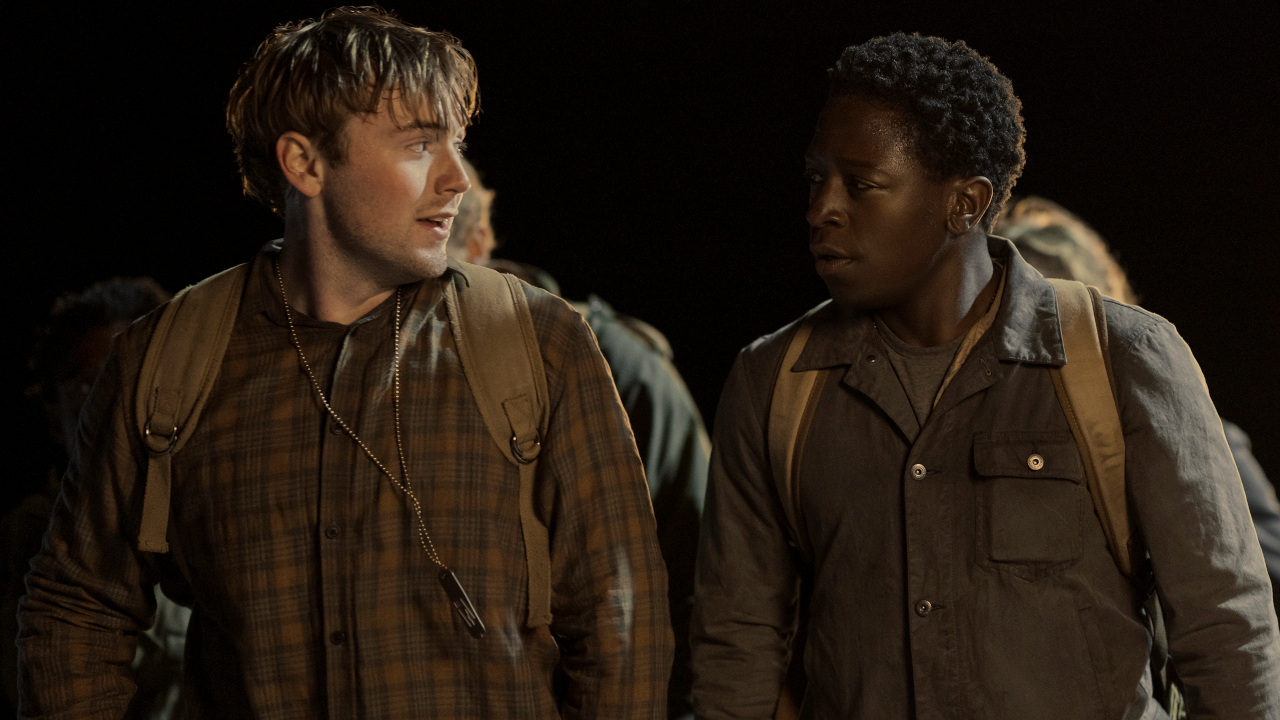The Long Walk Changes The Ending From Stephen King's Book, And I'm Flabbergasted The Movie Found A Way To Make It Even Darker
Spoilers!

SPOILER WARNING: The following article contains major spoilers for The Long Walk. If you have not yet seen the film, proceed at your own risk!
It’s that time once again: for the fifth time in 2025, we have reached a release date for a new Stephen King project. They’ve been arriving all year, including two movies (Osgood Perkins’ The Monkey and Mike Flanagan’s The Life Of Chuck), a TV show (MGM+’s The Institute) and two books (King’s new novel Never Flinch, and his illustrated take on Hansel & Gretel). There are still two more titles ahead in the coming months (namely HBO Max’s IT: Welcome To Derry and Edgar Wright’s The Running Man), but this week is all about Francis Lawrence’s The Long Walk, and this special edition of The King Beat is taking a specific focus on the shocking ending of the adaptation.
The stunning new film, which has earned rave reviews ahead of its release, is extremely faithful to the source material and pulls no punches in terms of content – but it does make some fascinating deviations from the novel in the ending. While watching the film unfold, I hated it and thought it was terrible, but after mentally digesting the dark conclusion, I have come to respect that it is the finale that the story needs. Before digging into analysis, let’s first compare the two versions, starting with what happens in the big screen version.

What Happens In The Long Walk Movie's Ending
Nailing down the precise start of a movie’s “ending,” can be tricky business, but in the case of The Long Walk, the beginning of the conclusion is pretty easy to mark: it’s when the odds narrow down to 50-50 in the death march.
Following Stebbins’ revelation that he is the son of the Major just hoping for an invitation to his father’s home, the self-described “rabbit” of the race finishes his walk and after this third warning, he screams for the soldiers to put an end to him. With rain set to start pouring down and the contest about to reach mile 331 of the trek, the only two remaining in the competition are Ray Garraty and Peter McVries.
As expected, crowds gather and cheer, excited to see one of the surviving boys be declared the winner. Peter stops, telling him that he wants Ray to go on and take the prize, and they both collect warnings, but the latter convinces the former to just keep going a little longer. Peter agrees, but as he goes, Ray stops and collects his final warning. He is shot and killed by the Major personally, and Peter is declared the winner of The Long Walk.
As fireworks launch, the Major riles up energy from on-lookers, and the crowd sings the national anthem, Peter is despondent and on the ground, overwhelmed with grief. The Major asks the winner what his wish is, and the boy doesn’t ask for future games to have two winners like he said he would; instead, he asks for Ray’s wish: he wants a carbine held by one of the soldiers. Convinced that Peter wouldn’t throw away his life because of how much he has won, the Major is unafraid when the gun is aimed at him. “This is for Ray,” Peter states plainly, and he fires a single round and kills his target. He stares down the road, and then he keeps walking.
Your Daily Blend of Entertainment News
Even with three-and-a-half months left to go before the end of 2025, The Long Walk is an easy candidate for “Feel Bad Movie Of The Year,” and it’s actually flabbergasting that it actually manages to be a darker conclusion than the book – which isn’t exactly full of sunshine and rainbows.

How The Long Walk Movie Ending Is Different Than The Book
In Stephen King’s The Long Walk, the final three contestants are the same – Stebbins, Garraty, and McVries – but they each exit the story at a different point than what is featured in the adaptation.
Peter is actually the first of the final three to die in the novel. Like the movie, the strongest relationship forged in the source material is between Ray and Peter, but the boys stick to the pact they make late in the race to stop helping each other. While Ray is providing a bit of distraction from all the horror by telling them a fairy tale, McVries decides that it is his time to stop and sit down. His proverbial ticket gets punched.
When it’s just Garraty and Stebbins left in the race, the protagonist becomes convinced that he is destined to lose, as the illegitimate son of the Major seems impossible to beat. But when Ray prepares to tell his opponent that he is giving up, Stebbins drops over dead, and he is declared the winner.
But for Ray, the Long Walk is not over. Even as crowds cheer his name and he is approached by The Major with congratulations on his victory, he still sees the silhouette of another walker up ahead with whom he believes he is still competing. He doesn’t stop; his mind fully broken, he instead begins to run so that he can catch up.
Both endings are incredibly powerful, albeit very different. The stories each see their main characters reach their end as broken humans who cannot properly live on after their endured trauma, but the film version adds a bit more complexity to the mix by giving more prominence to the “wish” aspect of the rules. While watching the movie, my initial feeling was that the book provided a much better conclusion, but I’ve come around on the take by screenwriter J.T. Mollner and find a lot of power in what he has written – specifically in the larger commentary about society’s treatment of youth.

I Initially Hated The Long Walk Ending… Until I Realized Why Change And Its Extreme Darkness Was Necessary
The Long Walk was the first novel that Stephen King ever completed, and while it wasn’t published until 1979 (under the author’s pseudonym Richard Bachman), the context of the Vietnam War is important to recognize in fully understanding the novel. King was seeing thousands of kids his age being sent overseas to fight and die in a war with an unclear agenda and strategy. That carnage was interpreted metaphorically by the writer as a celebrated “game” in a dystopian America.
More than a half-century after King wrote the book, the Vietnam War is long over and young Americans of today aren’t being drafted into combat, but young people are nevertheless continually burdened by inefficiencies in our society. These generations are told they are going to inherit our world, but meanwhile, public education systems are being dismantled, food insecurity is a major crisis in households with children (17.9 percent of them, per the USDA in 2023), and no gun control legislation is close to being passed despite firearm-related mortality being the leading cause of death among Americans aged 0-19 (as of 2022, according to the New England Journal of Medicine).
The story of The Long Walk is as relevant in 2025 as it was in the 1970s, and it’s necessary that the film end with extreme bleakness to drive home its point. I balked at an aspect of this while watching the movie, but I have since come around to appreciate it for what it has done.
At one point in the second act of the film, the boys get around to talking about the wishes that they hope to make should they win The Long Walk, and these desires tell us a lot about who these characters are and where they’ve come from. In the case of Ray Garraty, he is out for revenge; he’s the one who has the plan to wish for the carbine so that he can shoot the Major as payback for the execution of his father. Peter has what can be considered a more noble goal, in that it’s his intention to declare that future versions of the contest will have not one winner, but two.
So yeah, when Ray dies and Peter makes a wish for a gun instead of saving future lives, it hurts. With effervescent charisma and charm infused by actor David Jonsson, Peter is a character whom we want to see conquer the darkness that has engulfed him and have the fortitude to stand up against the fascist forces that have put him through extreme torture… but in what way is that fair? He is just a kid, and he has spent his entire existence getting broken by systems that he had no hand in, with The Long Walk just being the final nail in the coffin that was built around him his entire life. Judgement should not be held for Peter but for the forces that drove him to the brink – and the way in which The Long Walk makes one consider that is bleak but immense.
For those of you who are reading this feature to gird yourself for the experience of the film, The Long Walk is playing in theaters now (I find it hard to imagine anyone who has already seen it will be rushing for a second screening). And come next Thursday, I’ll be back here on CinemaBlend with a brand new edition of The King Beat digging into all of the latest and biggest headlines from the world of Stephen King. Between now and then, you can discover the long and exceptional history of King’s stories in film and television with my series Adapting Stephen King.

Eric Eisenberg is the Assistant Managing Editor at CinemaBlend. After graduating Boston University and earning a bachelor’s degree in journalism, he took a part-time job as a staff writer for CinemaBlend, and after six months was offered the opportunity to move to Los Angeles and take on a newly created West Coast Editor position. Over a decade later, he's continuing to advance his interests and expertise. In addition to conducting filmmaker interviews and contributing to the news and feature content of the site, Eric also oversees the Movie Reviews section, writes the the weekend box office report (published Sundays), and is the site's resident Stephen King expert. He has two King-related columns.
You must confirm your public display name before commenting
Please logout and then login again, you will then be prompted to enter your display name.
